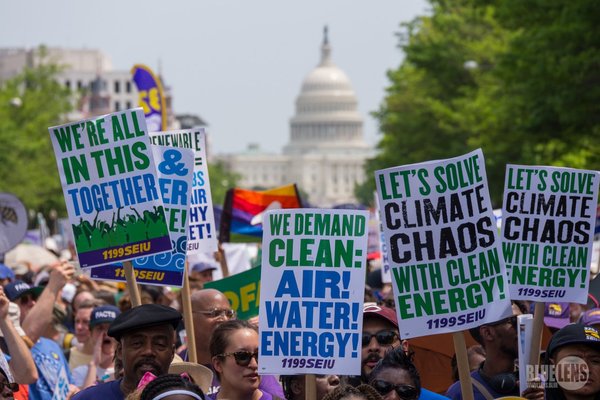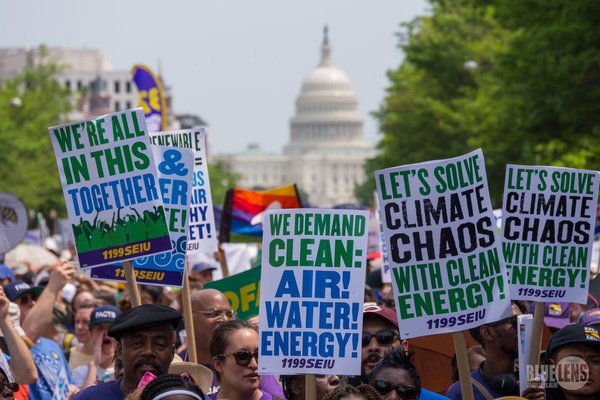
VIDEO: Calling out pollution, two dozen are arrested in Virginia.
'Citizens' Picket' seeks more aggressive action from Gov. Terry McAuliffe on coal ash, pipelines and rising seas.
Calling out pollution, two dozen are arrested in Virginia
Protesters getting arrested in front of the governor's mansion in Richmond, Va. Photo courtesy Virginia Organizing
Oct. 5, 2016
'Citizens' Picket' seeks more aggressive action from Gov. Terry McAuliffe on coal ash, pipelines and rising seas.
By Environmental Health News
Twenty-three people were arrested Wednesday as the fight to stop fossil fuel infrastructure erupted in Virginia, according to groups staging the civil disobedience.
Some 50 people picketed Gov. Terry McAuliffe's mansion, part of a coalition of environment and social justice groups demanding a stop to coal ash, fossil fuel energy development and a fracked-gas pipeline that will bisect the state.
Among their targets: The 301-mile Mountain Valley Pipeline, designed to bring gas from the Marcellus and Utica shale plays in Pennsylvania, Ohio and West Virginia to a connection with the national grid in southern Virginia.
The march comes amid a growing—and increasingly successful—focus by environmental groups on stopping infrastructure necessary to develop and transport fossil fuel reserves.
Earlier this year President Obama killed TransCanada's application to build the Keystone XL pipeline to ferry oil from Alberta's tar sands to refineries in Louisiana.
And for months this summer and fall, almost 1,000 Native Americans and their supporters have camped near the Missouri River in North Dakota, protesting a pipeline meant to carry crude oil from the state's lucrative but isolated Bakken development to market.
"Opposition to fracked-gas pipelines is growing across our region and the country—and a loud, local, community-driven climate justice movement is growing with it," said Virginia Organizing, one of the groups spearheading the rally, in a statement. "The White House is beginning to shift. The economics are beginning to shift. And people, from the Standing Rock Sioux in North Dakota to landowners in Giles County, Va., are coming together to protect their water, land and heritage."
[Full disclosure: Virginia Organizing is the umbrella group that, for a fee, handles payroll and accounting for Environmental Health Sciences, the publisher of EHN.org and DailyClimate.org. It does not influence in any way the websites' editorial policy or decisions]
The Richmond marchers weren't just protesting pipelines. Over the past three days, they've also called attention to the damage caused by coal ash ponds, especially to local rivers and drinking water supplies.
Dean Naujoks of the Potomac Riverkeeper Network told of tests his organization has done of water samples from tributaries to the James and Potomac rivers. Holding a bottle of water from a family's drinking well, he said tests found hexavalent chromium, lead, antimony and other harmful byproducts that often leach from coal ash ponds.
"This is toxic," Naujoks said. "Who would give this to their kids?"
The "Citizens' Picket" focused on three major pollution threats facing Virginia: Pipelines on Monday, coal ash on Tuesday and coastlines—especially rising sea levels—on Wednesday.
EHN welcomes republication of our stories, but we require that publications include the author's name and Environmental Health News at the top of the piece, along with a link back to EHN's version.
For questions or feedback about this piece, contact Brian Bienkowski at bbienkowski@ehn.org.














